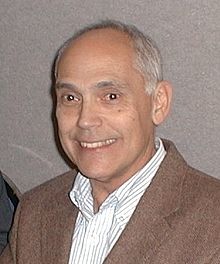Planchart, Alejandro
Biography
Born: July 29, 1935
Country: Caracas, Venezuela; USA
Studies: Yale University - Mus.B. (1958) and Mus.M. (1960); Ph.D. at Harvard University (1971),
Teachers:
Alejandro Enrique Planchart (born July 29, 1935) is a Venezuelan-American musicologist, conductor, and composer. He is considered to be one of the leading scholars on the music of Guillaume Dufay, and in general he is a specialist on music of the late Middle Ages and early Renaissance. He was born in Caracas, Venezuela, and moved to the United States to study at Yale University, where he received the degrees of Mus.B. (1958) and Mus.M. (1960). He received his Ph.D. at Harvard University in 1971, with a dissertation on the medieval English manuscript source, the Winchester Troper. He taught at Yale for several years and founded the Cappella Cordina, an early music ensemble. The Cappella Cordina was composed mainly of undergraduates, graduate students and members of the community. In 1977 he joined the faculty at the University of California, Santa Barbara; as of 2006 he was Professor Emeritus of musicology there. Among his numerous publications are entries on Cristóbal de Morales, Clemens non Papa, Guillaume Dufay, St. Martial, St. Gall, Venezuelan places and musicians, and other topics in the New Grove Dictionary of Music and Musicians (both the 1980 edition and the 2001 edition). In addition, he has conducted numerous performances for recordings, mostly of early music, many on the Lyrichord and Musical Heritage Society labels.[1]
Alejandro Enrique Planchart is Emeritus Professor of Music at the University of California. He was born in Caracas in 1935 and pursued studies in piano, philosophy, and literature in his native city. Later he studied composition, piano, and harpsichord at Yale University (B.Mus. 1958, M.Mus. 1960). After four years working as a composer, conductor, and arranger in New York and New Haven, he entered Harvard to study music history (Ph.D. 1971) while continuing his work as a composer and conductor. In 1963 he founded an early music ensemble, Cappella Cordina. This ensemble became the de facto collegium musicum at Yale for about twelve years and later one of the ensembles of the collegium musicum at UCSB, which remained in operation until 2002. He taught music theory and history at Yale (1967-75) and the University of Victoria (1975-76). He was visiting professor at Brandeis (1982-83) and Harvard (1989-90). From 1976 to his retirement in 2002 he was in the faculty at UC Santa Barbara, where he taught music history (middle ages, classical era, 20th century), and occasionally counterpoint and composition in the music department and Latin paleography in the history department. In addition he conducted the combined collegia at UC Santa Barbara, which included a medieval ensemble, a motet choir, and a Baroque and Classical orchestra, which gave a combined total of six or seven different programs each year covering a repertory that went from pre-Gregorian chant to the music of Haydn and Mozart. He was also an occasional performer and conductor in concerts of the Ensemble for Contemporary Music. He has lectured widely in the United States, Europe, and Latin America and published over a hundred works including symphonies, songs, solo and chamber music, articles and books on Latin plainsong, the music of Guillaume Du Fay and other Renaissance topics, as well as Latin American music and aspects of 20th century music. With the Cappella Cordina he issued a pioneering series of recordings of medieval and Renaissance music. He received a Morse Faculty Fellowship from Yale University in 1973 and was a Guggenheim fellow in 1987-88. His book The Repertory of Tropes at Winchester won the Gustave Arlt award in the Humanities from the Council of Graduate Schools in the United States in 1979. In 2006 he received the Howard M. Brown Award from Early Music America for lifetime contribution to the field of early music, and in 2009 he received the Arion Prize from the Cambridge Society for Early Music for his work on Guillaume Du Fay.[2]
Works for Percussion
Divertimento (Planchart) - Percussion Trio
References
- ↑ Alejandro_Planchart Bio Retrieved 5/20/2012
- ↑ Alejandro_Planchart Bio UCSB Retrieved 5/20/2012
